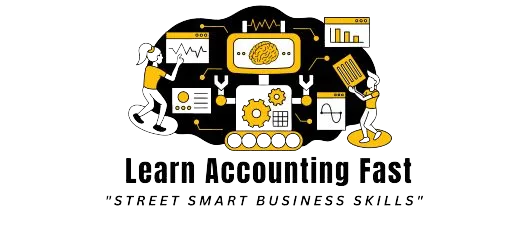Understanding and Leveraging Financial Principles
“The wealthy understand that true financial freedom comes from financial education, not necessarily formal education”. Robert Kiyosaki
They know that simply having a degree won’t build wealth; understanding and leveraging financial principles will.
Running a successful business requires more than a great idea and hard work.
Understanding and leveraging financial principles is crucial to making informed decisions, managing resources effectively, and ensuring long-term profitability
Here’s a simple guide to help you grasp and apply key financial principles to your business.
Understanding Financial Statements
Financial Statements are essential documents that provide a snapshot of your business's financial health. The three main types are:
Income Statement: Shows your revenue ( Cash in ) and expenses (Cash Out) over a specific period. It tells you if your business is profitable by subtracting expenses from revenue.
Balance Sheet: Displays your assets,(What you Own) & liabilities, (What You Owe) and equity ( What your’ worth) at a specific point in time. It helps you understand what your business owns and owes.
Cash Flow Statement: Tracks the flow of cash in and out of your business. It shows how well your business generates cash to meet its debt obligations and fund its operating expenses.
Action Tip: Regularly review these statements to keep track of your financial health. Understand where your money is coming from and where it’s going.

Managing Cash Flow
Cash Flow is the lifeblood of any business. It’s crucial to ensure you have enough cash to cover your expenses and invest in growth opportunities.
Positive cash flow means more money is coming into your business than going out.
Action Tip: Create a cash flow forecast to predict your cash inflows and outflows.
This helps you plan for periods when cash might be tight and ensures you can meet your financial obligations.
Budgeting and Forecasting
Budgeting involves creating a plan for your income and expenses over a specific period.
It helps you allocate resources efficiently and control your spending.
Forecasting involves predicting future financial performance based on historical data and market trends.
Action Tip: Set realistic budgets and adjust them as needed.
Use forecasting to anticipate financial challenges and opportunities, allowing you to make proactive decisions.
Understanding Costs
Fixed Costs are expenses that remain constant regardless of your business activity, such as rent and salaries.
Variable Costs fluctuate with your business activity, such as raw materials and commission payments.
Action Tip: Analyse your costs regularly. Identify areas where you can cut unnecessary expenses without compromising the quality of your products or services.
Pricing Strategies

Setting the right price for your products or services is crucial for profitability.
Consider your costs, competitor pricing, and the value you provide to your customers.
Action Tip: Test different pricing strategies to see what works best for your business.
Monitor the market and adjust your prices as required to stay competitive and profitable.
Leveraging Debt
Debt can be a useful tool for financing growth if used wisely.
However, it’s important to manage it carefully to avoid excessive interest payments and financial strain.
Action Tip: Evaluate the cost of debt versus the benefits of the investment it will fund.
Ensure you have a clear plan for repaying any borrowed money.
Investing in Growth
Reinvesting profits back into your business can drive growth and increase profitability.
This might include investing in new equipment, marketing, or expanding your team.
Action Tip: Prioritize investments that offer the highest return on investment (ROI).
Regularly review the performance of your investments to ensure they are delivering the expected benefits.
Conclusion
By understanding and leveraging these financial principles, you can make smarter decisions that can drive your business forward.
Regularly review your financial statements, manage your cash flow, and make informed budgeting and investment choices.
These practices will help you maintain financial health and achieve long-term success.
Start applying these principles today, and watch your business thrive!
It's time to thrive in these trying times by taking advantage of this opportunity for personal growth.
Be the greatest you can be…
Join us, click the link below for short, sharp, simple video courses that give you confidence and street-smart business skills to succeed.
For a simple system to implement today in 5 minutes click here “reading financial statements for Business Growth”
Latest Posts
6 Secret Business
Tips
Ever feel like you’re working hard… but the money still feels “mysterious”? But you can’t always tell what’s actually moving the needle?
The Six Laws of
Wealth Creation
The Six Laws of Wealth Creation. These timeless actions work in 2025’s rapid-change environment and give you calm, repeatable steps to grow money.....
How to Read Business
Financial Reports
A Story of Business Secrets Hidden in Reports
Sarah sat in her office staring at a thick folder of financial reports. Sales, costs, cash flow....
The Millionaire
Mind in Action
Timeless Wealth, Flow, and Power from Robert Kiyosaki,Frank Kern, Tony Robbins
and Open Ai......
Why Cost Control Is the Forgotten Key to Profitability
Most entrepreneurs chase sales growth like it’s the only thing that matters.They spend thousands on ads, new products, and fa ncy offices.....
Master Prompts For
Financial Analysis
The Complete Small Business Guide to Financial Analysis: Formulas, Examples, and Tips.These are super-powerful questions you can ask an AI to help..
Disclaimer: The content shared on this blog and in these videos is for informational and educational purposes only. Despite my 30 years of experience as a business owner, I am not a certified financial advisor, accountant, or legal professional. The insights and tips shared are based on personal experiences and should not be taken as professional financial or legal advice. For financial, legal, or professional advice, please consult with a certified professional in the respective field. I disclaim any liability or responsibility for actions taken based on any information found in this blog or these videos.
Copyright Learn Accounting Fast - All Rights Reserved 2025









Facebook
Instagram
X
LinkedIn
Youtube